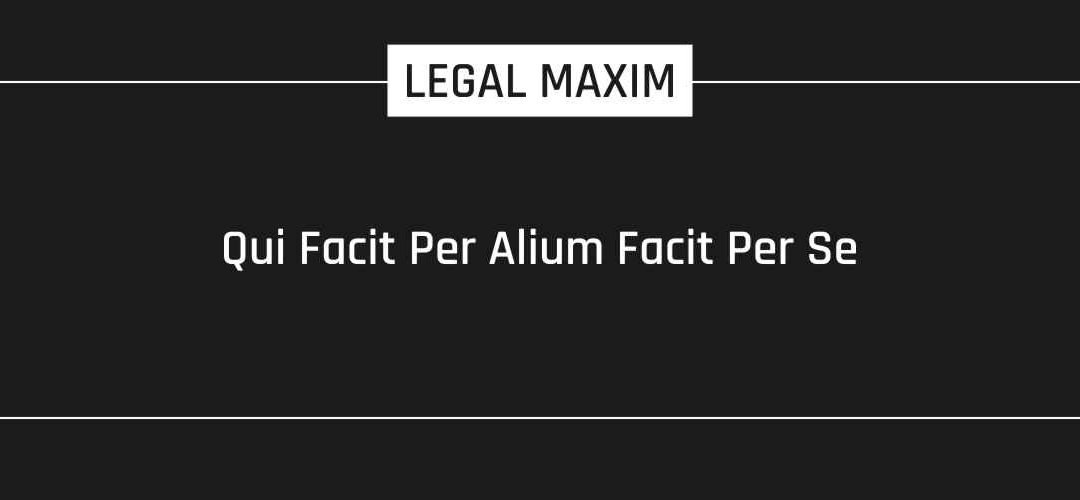Literal Meaning
He who acts through another does the act himself.
Origin
Latin
Explanation
The above maxim is similar in the sense of the Latin maxim – Respondeat Superior, which is a traditional basis of vicarious liability. It means, that an employer is liable for the consequences of any act done by employees in the ordinary course of their duties and responsibilities. When an employee is entrusted by his employer to do some kind of works, on behalf of or in absence of the employer or the master, the employee or the servant is left to determine everything in accordance with the circumstances. It is the fundamental premise of agency law. However, this concept does not apply to Criminal Jurisprudence.
Illustration
A, the owner of a car, asked her friend B to take her car and drive the same to her office. As the car was near her office, it hit a pedestrian C on account of B’s negligent driving and injured him seriously. Now, C files a suit for damages against A. In this case, A authorized B to driver her car and for her purpose, she is responsible for the accident. However, this case is playable in the court of law as A had not asked B to hit anyone further, neither did she authorize B to drive in a way to hit someone. Thus, B was negligent on his part in driving the car, so he should also be personally held liable.
Case Law
In Deo Narain Rai and Anr. vs Kukur Bind and Ors., the Allahabad High Court held that “In accordance with the maxim Qui Facit Per Alium Facit Per Se, which means – he who does an act through another in the eyes of the law, does it himself. A signature by the authorized agent of a mortgagor is sufficient. This is an old and well-recognized maxim, and, as it seems to me, ought to prevail, unless the Legislature makes it reasonably clear that its operation was intended to be excluded in the interpretation of a Statute. At common law where a person authorizes another to sign for him, the signature of the person so signing is the signature of the person authorizing it.”
In Mannasingh And Anr. vs State, the Madhya Pradesh High Court held that “Criminal Jurisprudence does not recognize the principle of vicarious liability; the master cannot be punished for the actions of his servant unless the master abetted it or there is some legislative enactment which provides otherwise. The maxim of qui facit per alium, facit per so, which means that he who acts through another is deemed to act in person is a doctrine of Civil, law and does not belong to the domain of Criminal Jurisprudence.”
